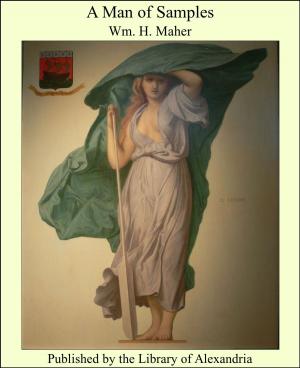On the Various Forces of Nature and Their Relations to Each Other
Nonfiction, Religion & Spirituality, New Age, History, Fiction & Literature| Author: | Michael Faraday | ISBN: | 9781465608208 |
| Publisher: | Library of Alexandria | Publication: | March 8, 2015 |
| Imprint: | Language: | English |
| Author: | Michael Faraday |
| ISBN: | 9781465608208 |
| Publisher: | Library of Alexandria |
| Publication: | March 8, 2015 |
| Imprint: | |
| Language: | English |
Which was first, Matter or Force? If we think on this question, we shall find that we are unable to conceive of matter without force, or of force without matter. When God created the elements of which the earth is composed, He created certain wondrous forces, which are set free, and become evident when matter acts on matter. All these forces, with many differences, have much in common, and if one is set free, it will immediately endeavour to free its companions. Thus, heat will enable us to eliminate light, electricity, magnetism, and chemical action; chemical action will educe light, electricity, and heat. In this way we find that all the forces in nature tend to form mutually dependent systems; and as the motion of one star affects another, so force in action liberates and renders evident forces previously tranquil. We say tranquil, and yet the word is almost without meaning in the Cosmos.—Where do we find tranquillity? The sea, the seat of animal, vegetable, and mineral changes, is at war with the earth, and the air lends itself to the strife. The globe, the scene of perpetual intestine change, is, as a mass, acting on, and acted on, by the other planets of our system, and the very system itself is changing its place in space, under the influence of a known force springing from an unknown centre. For many years the English public had the privilege of listening to the discourses and speculations of Professor Faraday, at the Royal Institution, on Matter and Forces; and it is not too much to say that no lecturer on Physical Science, since the time of Sir Humphrey Davy, was ever listened to with more delight. The pleasure which all derived from the expositions of Faraday was of a somewhat different kind from that produced by any other philosopher whose lectures we have attended. It was partially derived from his extreme dexterity as an operator: with him we had no chance of apologies for an unsuccessful experiment—no hanging fire in the midst of a series of brilliant demonstrations, producing that depressing tendency akin to the pain felt by an audience at a false note from a vocalist. All was a sparkling stream of eloquence and experimental illustration. We would have defied a chemist loving his science, no matter how often he might himself have repeated an experiment, to feel uninterested when seeing it done by Faraday.
Which was first, Matter or Force? If we think on this question, we shall find that we are unable to conceive of matter without force, or of force without matter. When God created the elements of which the earth is composed, He created certain wondrous forces, which are set free, and become evident when matter acts on matter. All these forces, with many differences, have much in common, and if one is set free, it will immediately endeavour to free its companions. Thus, heat will enable us to eliminate light, electricity, magnetism, and chemical action; chemical action will educe light, electricity, and heat. In this way we find that all the forces in nature tend to form mutually dependent systems; and as the motion of one star affects another, so force in action liberates and renders evident forces previously tranquil. We say tranquil, and yet the word is almost without meaning in the Cosmos.—Where do we find tranquillity? The sea, the seat of animal, vegetable, and mineral changes, is at war with the earth, and the air lends itself to the strife. The globe, the scene of perpetual intestine change, is, as a mass, acting on, and acted on, by the other planets of our system, and the very system itself is changing its place in space, under the influence of a known force springing from an unknown centre. For many years the English public had the privilege of listening to the discourses and speculations of Professor Faraday, at the Royal Institution, on Matter and Forces; and it is not too much to say that no lecturer on Physical Science, since the time of Sir Humphrey Davy, was ever listened to with more delight. The pleasure which all derived from the expositions of Faraday was of a somewhat different kind from that produced by any other philosopher whose lectures we have attended. It was partially derived from his extreme dexterity as an operator: with him we had no chance of apologies for an unsuccessful experiment—no hanging fire in the midst of a series of brilliant demonstrations, producing that depressing tendency akin to the pain felt by an audience at a false note from a vocalist. All was a sparkling stream of eloquence and experimental illustration. We would have defied a chemist loving his science, no matter how often he might himself have repeated an experiment, to feel uninterested when seeing it done by Faraday.















